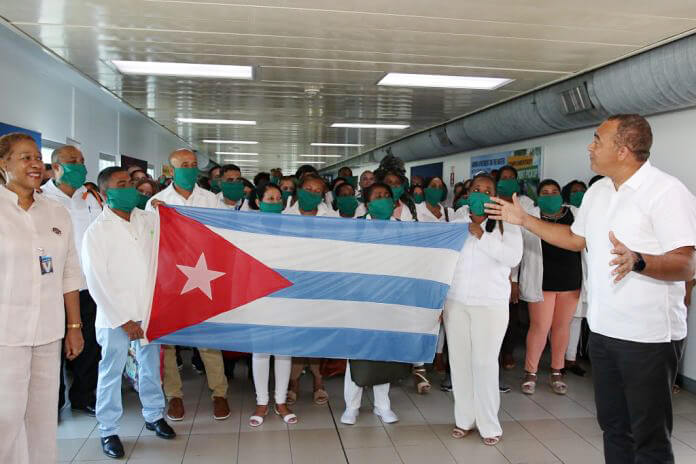Cuba was the only Caribbean country that was elected on Nov. 2 to the United Nations Educational, Scientific and Cultural Organization (UNESCO) executive board.
Delegates attending the conference of the main governing body here elected 31 new members to the agency’s executive board, UNESCO said.
The ongoing 36th session elected board members to four-year terms on the basis of a geographical allocation.
Cuba, Brazil, Ecuador and Mexico were elected from the Latin America and the Caribbean grouping.
The Republic of Korea, Thailand, Indonesia, Afghanistan, Pakistan and Papua New Guinea were also elected, representing Asia.
Austria, France, Spain, Italy, United Kingdom and Northern Ireland and United States were elected from the Western European and other countries grouping to join the executive board. Russia, Czech Republic, Montenegro and Former Yugoslav Republic of Macedonia were chosen from Eastern Europe.
The African countries of Nigeria, Namibia, Ethiopia, Mali, Gabon, Malawi, Angola and Gambia are also joining the board, while the Middle East and North Africa will be represented by the United Arab Emirates, Tunisia and Saudi Arabia.
UNESCO’s General Conference comprises the agency’s Member States, and is tasked with determining the agency’s policies and main lines of work.
The conference also elects the 58-member Executive Board, which assumes the overall management of the agency.
The new members join others elected during the 2009 session of the General Conference and whose mandate will expire in 2013. The board meets twice a year.
Meantime, UNESCO head, Irina Bokova, has voiced regret over the decision by the United States to withhold its dues to the agency, saying that reduced funding will affect its ability to implement crucial programs in education, support for emerging democracies and the fight against extremism.
“UNESCO is encouraged that the United States will maintain its membership in the organization and hopes that a resolution to the funding issue will ultimately be identified,” said the director-general in a statement. “Until that happens, it will be impossible for us to maintain our current level of activity.
“I call on the U.S. administration, Congress and the American people to find a way forward and continue support for UNESCO in these turbulent times,” she added.
UNESCO’s General Conference has voted to admit Palestine as a full member of the Paris-based agency. The decision was supported by 107 member States, with 14 against and 52 abstentions. The United States had opposed the move.
U.N. Secretary-General Ban Ki-moon voiced “deep concern” over Israel’s response to the UNESCO General Conference’s decision in favor of Palestinian membership.
Media reports indicated that Israel plans to accelerate the building of new apartments in the West Bank and East Jerusalem, and that the transfer of revenue to the Palestinian Authority would be suspended in the light of the decision at UNESCO.
“Israeli settlement activity is contrary to international law and the Roadmap and prejudices final status negotiations,” Ban said.
A number of Caribbean Community (CARICOM) states have expressed support for an independent Palestinian state.























